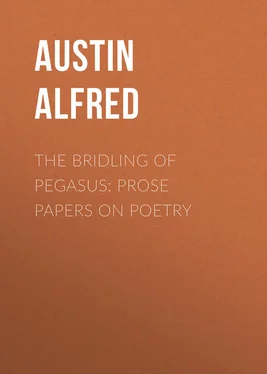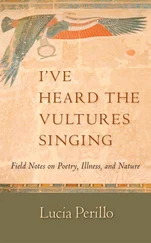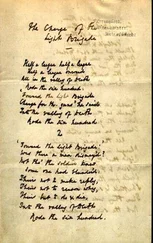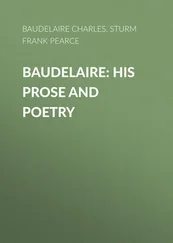Alfred Austin - The Bridling of Pegasus - Prose Papers on Poetry
Здесь есть возможность читать онлайн «Alfred Austin - The Bridling of Pegasus - Prose Papers on Poetry» — ознакомительный отрывок электронной книги совершенно бесплатно, а после прочтения отрывка купить полную версию. В некоторых случаях можно слушать аудио, скачать через торрент в формате fb2 и присутствует краткое содержание. ISBN: , Жанр: foreign_antique, foreign_prose, foreign_poetry, на английском языке. Описание произведения, (предисловие) а так же отзывы посетителей доступны на портале библиотеки ЛибКат.
- Название:The Bridling of Pegasus: Prose Papers on Poetry
- Автор:
- Жанр:
- Год:неизвестен
- ISBN:http://www.gutenberg.org/ebooks/35394
- Рейтинг книги:3 / 5. Голосов: 1
-
Избранное:Добавить в избранное
- Отзывы:
-
Ваша оценка:
- 60
- 1
- 2
- 3
- 4
- 5
The Bridling of Pegasus: Prose Papers on Poetry: краткое содержание, описание и аннотация
Предлагаем к чтению аннотацию, описание, краткое содержание или предисловие (зависит от того, что написал сам автор книги «The Bridling of Pegasus: Prose Papers on Poetry»). Если вы не нашли необходимую информацию о книге — напишите в комментариях, мы постараемся отыскать её.
The Bridling of Pegasus: Prose Papers on Poetry — читать онлайн ознакомительный отрывок
Ниже представлен текст книги, разбитый по страницам. Система сохранения места последней прочитанной страницы, позволяет с удобством читать онлайн бесплатно книгу «The Bridling of Pegasus: Prose Papers on Poetry», без необходимости каждый раз заново искать на чём Вы остановились. Поставьте закладку, и сможете в любой момент перейти на страницу, на которой закончили чтение.
Интервал:
Закладка:
THE FEMININE NOTE IN ENGLISH POETRY
Women, to whom a barbarous description, willingly accepted by themselves, has been applied, have recently been much in the public eye, and still more in the public prints. But I should not class them under the designation of feminine; and, though they may have invaded prose fiction, they have not been, and I think they never will be, met with in Poetry. They are noisy, but numerically weak. Eve listening to the Tempter, then bewailing her weakness; Ruth amid the alien corn; Magdalen and her box of spikenard; Helen of Troy following evil-hearted Paris; Beatrice in heaven; Una and the milk-white lamb; Rosalind and Celia in As You Like It ; the Lily Maid of Astolat in the Idylls of the King – these are women of whom, or, at least, of the sentiments and sympathies of whom, as manifested in English poetry, I wish to speak. The most progressive age one can possibly conceive will never succeed in leaving human nature behind, and I have not the smallest doubt that women will continue to be womanly to the end of time.
What, then, is feminine as contrasted with masculine? what is womanly as compared with manly, whether in literature or in life? Men and women have many qualities in common, and resemble more than they differ from each other. But while, speaking generally, the man’s main occupations lie abroad, the woman’s main occupation is at home. He has to deal with public and collective interests; she has to do with private and individual interests. We need not go so far as to say, with Kingsley, that man must work and woman must weep; but at least he has to fight and to struggle, she has to solace and to heal. Ambition, sometimes high, sometimes low, but still ambition – ambition and success are the main motives and purpose of his life. Her noblest ambition is to foster domestic happiness, to bring comfort to the afflicted, and to move with unostentatious but salutary step over the vast territory of human affection. While man busies himself with the world of politics, with the world of commerce, with the rise and fall of empires, with the fortunes and fate of humanity, woman tends the hearth, visits the sick, consoles the suffering – in a word, in all she does, fulfils the sacred offices of love.
Now the highest literature – and Poetry is confessedly the highest literature – is a transfiguring reflex of life; and in its magic mirror we perforce see reflected all the thoughts, feelings, interests, passions, and events of human existence. In English poetry, therefore, we shall expect to hear both the masculine note and the feminine note; and in what proportions we hear them will be incidentally indicated in the course of my remarks. But it is the Feminine Note in which we are at present specially interested, and if I am asked to define briefly what I mean by this Feminine Note, I should say that I mean the private or domestic note, the compassionate note or note of pity, and the sentimental note or note of romantic love.
Now I am well aware there are numbers of people who look on poetry as something essentially and necessarily feminine, and who will say, “What do you mean by speaking of the Feminine Note in English poetry? Surely it has no other note, poetry being an effeminate business altogether, with which men, real robust men, need not concern themselves.” The people who hold this opinion can have but a very limited acquaintance with English poetry, and a yet more limited familiarity with the poetry of other ages and other nations that has come down to us. As a matter of fact, though the feminine note has rarely, if ever, been wholly absent from poetry, it is only of late years comparatively that it has become a very audible note. I should be carried too far away from my subject if I attempted to demonstrate the accuracy of this assertion by a survey, however rapid, of all the best-known poetry in languages, dead and living, of other times and other peoples. But to cite one or two familiar examples, is the feminine note, I may ask, the predominant, or even a frequent, note in the Iliad ? The poem opens, it is true, with a dispute among the Argive chiefs, and mainly between Agamemnon and Achilles, concerning two young women. But how quickly Chryseis and Bryseis fall into the background, and in place of any further reference to them, we have a tempest of manly voices, the clang of arms, the recriminations of the Gods up in Olympus, and the cataloguing of the Grecian ships! Lest perhaps tender interest should be absent overmuch, just when Paris is being worsted in his duel with Menelaus for the determination of the siege, Venus carries him off under cover of a cloud, and brings Helen to his side. Then follows a scene in which the fair cause of strife and slaughter stands distracted between her passion for Paris, her shame at his defeat and flight, and her recollection of the brave Argive Chief she once called her lord. But more fighting promptly supervenes, and, save in such a passing episode as the lovely leave-taking of Hector and Andromache, the poem moves on through a magnificent medley of fighting, plotting, and speech-making. Even in that exceptionally tender episode what are the farewell words of Hector to his wife, “Go to your house and see to your own duties, the loom and the distaff, and bid your handmaidens perform their tasks. But for war shall man provide.” It is over the dead body of Patroclus that Achilles weeps; and whatever tears are shed in the Iliad are shed by heroes for heroes. Life, as represented in that poem, is a life in which woman plays a shadowy and insignificant part, and wherein domestic sentiments are subordinated to the rivalries of the Gods and the clash of chariot-wheels.
This subordinating of woman to man, of individual aims and private feelings to great aims and public issues, is equally present in the great Latin poem, the Æneid . “Arms and the Man, I sing,” says Virgil at once, and in the very first line of his poem; and though in one book out of the twelve of which it consists he sings of the woman likewise, it is but to leave her to her fate and to liberate Æneas from her seductions. Virgil is rightly esteemed the most tender and refined writer of antiquity. Yet to the modern reader, accustomed to the feminine note in poetry, there is something amazingly callous, almost cruel, in the lines with which, while the funeral pyre of Dido is still smoking, he tells us how Æneas, without a moment’s hesitation, makes for the open sea, and sails away from Carthage. But then the main business of Æneas was not to soothe or satisfy the Carthaginian queen, but to build the city and found the Empire of Rome. “Spirits,” says Shakespeare, “are not finely touched save to fine issues”; and it never would have occurred to Virgil to allow the hero of the Æneid to be diverted from his masculine purpose by anything so secondary as the love, or even the self-immolation, of a woman.
Let us, however, overleap the intervening centuries, and betake ourselves to the poetry of our own land and our own language. Chaucer, the first great English poet, was, like all writers of supreme genius, a prolific and voluminous writer, and we have thousands of verses of his besides the Prologue to the Canterbury Tales . But it is by this latter work that he is best known; and it is pre-eminently and adequately representative, both of his own genius and of the temper of the times in which he lived. You will have to hunt very diligently through his description of the Knight, the Squire, the Yeoman, the Prioress, the Monk, the Merchant, the Sergeant of the Law, the Franklin, the Miller, the Manciple, and the rest of his jovial company, in order to find anything approaching the feminine note. He says little about what any of them thought, and absolutely nothing concerning what they felt, but confines himself to descriptions of their personal appearance, of their conduct and their character, in a word, of their external presentation of themselves. The Knight who wore a doublet all stained by his coat of mail, was well mounted, and had ridden far, no man farther. The Squire, or page, had curly locks, and had borne himself well in Flanders and Picardy. The Yeoman bore a weighty bow, handled his arrows and tackle in admirable fashion, and was dressed in a coat of green. The Monk was fat and in good case, and loved a roast swan more than any other dish. The Friar, we are told, had made many a marriage at his own cost, and would get a farthing out of a poor widow, though she had only one shoe left. The Franklin had a white beard and a high complexion, kept a capital table, and blew up his cook loudly if the sauces were not to his liking. The Wife of Bath had married five husbands, not to speak of other company in her youth; and the Sumpnor loved garlic, onions, and leeks, had a fiery face, and doated on strong wine. There is nothing very feminine in all this, is there? The one sole touch of tenderness that I can remember, and it is very elementary and introduced quite casually, is that in which we are told that the Prioress is so full of pity that she would weep if she saw a mouse caught in a trap. One can easily surmise what sort of tales would proceed from such downright, hearty, unromantic personages; and, save where any of them recite well-known stories from ancient poets, their own narratives are as buxom, burly, and as unsentimental as themselves. If princes and princesses, fine lords and ladies, be the heroes and heroines of the Tale, a certain amount of conventional pity is extended to their woes. But if the personages of the story be, as they for the most part are, common folk, and such as the story-tellers themselves would be likely to know, their misfortunes and mishaps are used merely as a theme for mirth and merciless banter. The humour displayed is excellent, but it is not the humour of charity . It is not compassionate, and it is not feminine. The feminine note is not absent from Chaucer’s Tales, but it is generally a subordinate note, a rare note, a note scarcely heard in his great concert of masculine voices.
Читать дальшеИнтервал:
Закладка:
Похожие книги на «The Bridling of Pegasus: Prose Papers on Poetry»
Представляем Вашему вниманию похожие книги на «The Bridling of Pegasus: Prose Papers on Poetry» списком для выбора. Мы отобрали схожую по названию и смыслу литературу в надежде предоставить читателям больше вариантов отыскать новые, интересные, ещё непрочитанные произведения.
Обсуждение, отзывы о книге «The Bridling of Pegasus: Prose Papers on Poetry» и просто собственные мнения читателей. Оставьте ваши комментарии, напишите, что Вы думаете о произведении, его смысле или главных героях. Укажите что конкретно понравилось, а что нет, и почему Вы так считаете.












